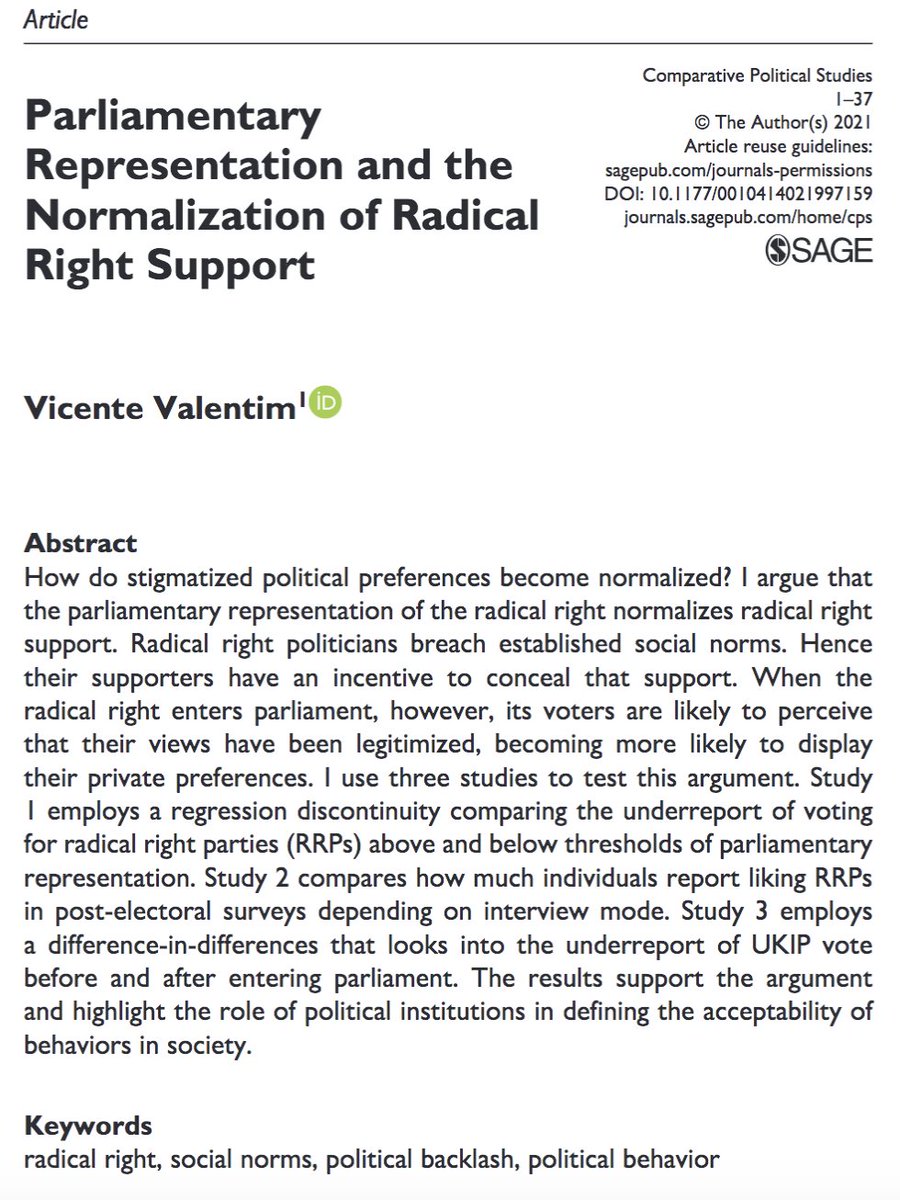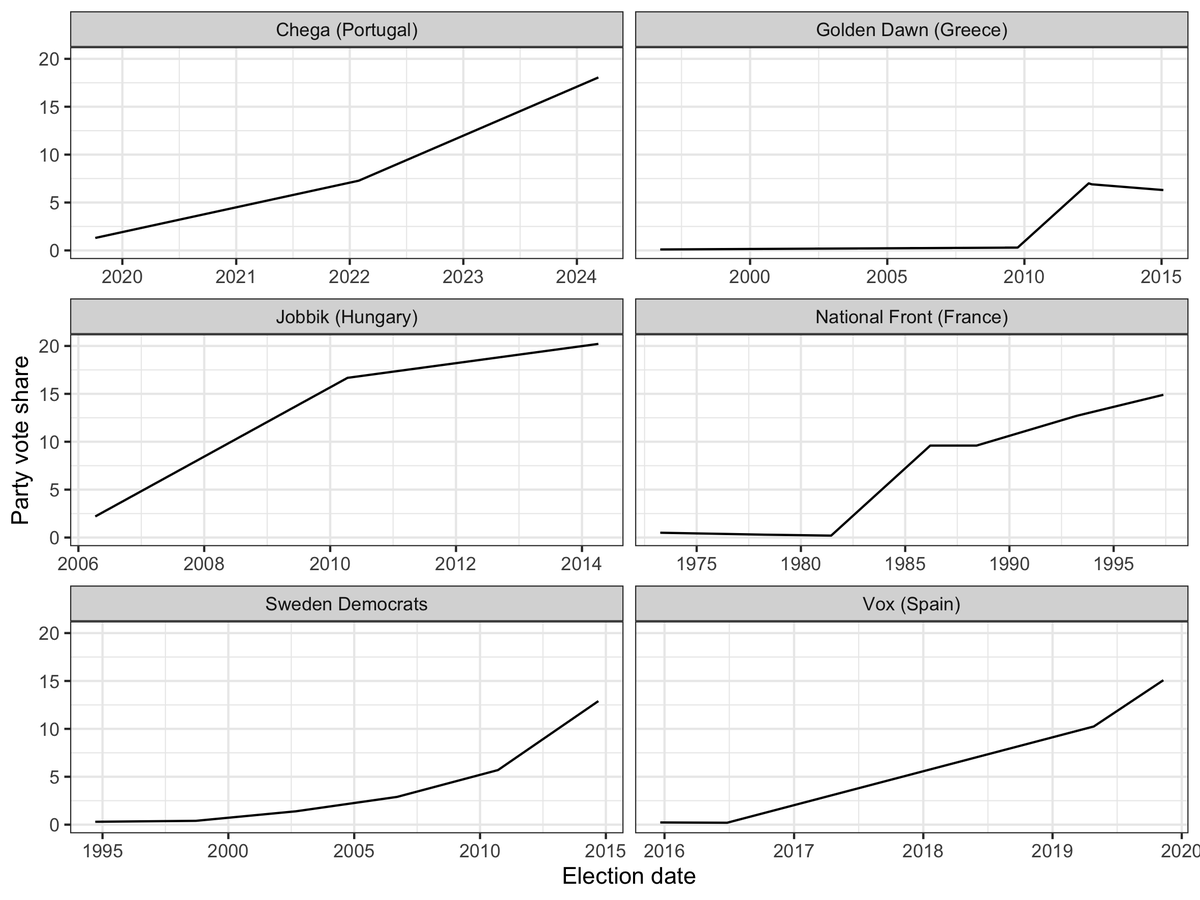
Assistant prof of political science @IEUniversity | Previously @UniofOxford & @EUI_EU l Researching what we think is ok to do in a democracy & how that changes.
How to get URL link on X (Twitter) App


 One pattern with radical-right politicians is that support for them often grows very fast.
One pattern with radical-right politicians is that support for them often grows very fast. 

https://x.com/ValentimVicente/status/1819716014755487826

 In the book, I argue that this is because the growth of the far right is to be understood (at least partly) as a process of normalization.
In the book, I argue that this is because the growth of the far right is to be understood (at least partly) as a process of normalization.